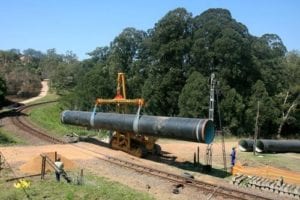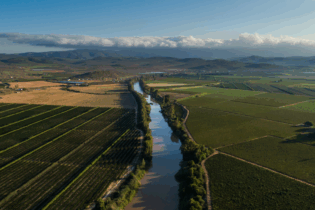A new pipeline will soon double the volume of water that can be supplied to the port city of Pemba in the Cabo Delgado Province of Mozambique.
Pemba is a popular destination for water sport and diving enthusiasts and has seen an increase in migration since the discovery of natural gas, which has drastically increased the volume of clean water that needs to be supplied to the city. The new 42-kilometer long bulk water pipeline, due for completion in August 2019, will solve this challenge and forms part of a larger project which includes new pump stations and expansion of the well field.Unique project team
“With the completion of the pipeline in August 2019, the supply of clean water to Pemba will already be improved. The real benefit will however come when the pump station and borehole expansion projects have also been completed,” says ValizeScholtz, an associate engineer at Nyeleti Consulting. As part of an international project team appointedby the Mozambican government’s Water Supply Investment and Assets Fund to complete this project, Nyeleti Consulting Engineers assisted with the preliminary and detailed design of the 42km DN500 Ductile Iron Transmission Main. The project saw the establishment of a diverse international team that included role players from China, Germany, Mozambique and South Africa. This structure provided a wide range of expertise to the project, ensuring a quality end result and providing a unique platform for problem solving.To date, the project team has completed some major tasks, including hydraulic and surge design of the new transmission main, route selection and an external condition assessment of the existing transmission main.
“To be able to visit a beautiful city such as Pemba and working in rural areas of Africa is gratifying.This has been one of the longest bulk pipelines we have been involved in and we consider it a key strategic project to position ourselves stronger in the water market outside South African borders. Overcomingchallenges to realise the opportunity to bring clean water to rural areas makes all the effortworth it in the end,” concludes Scholtz.





